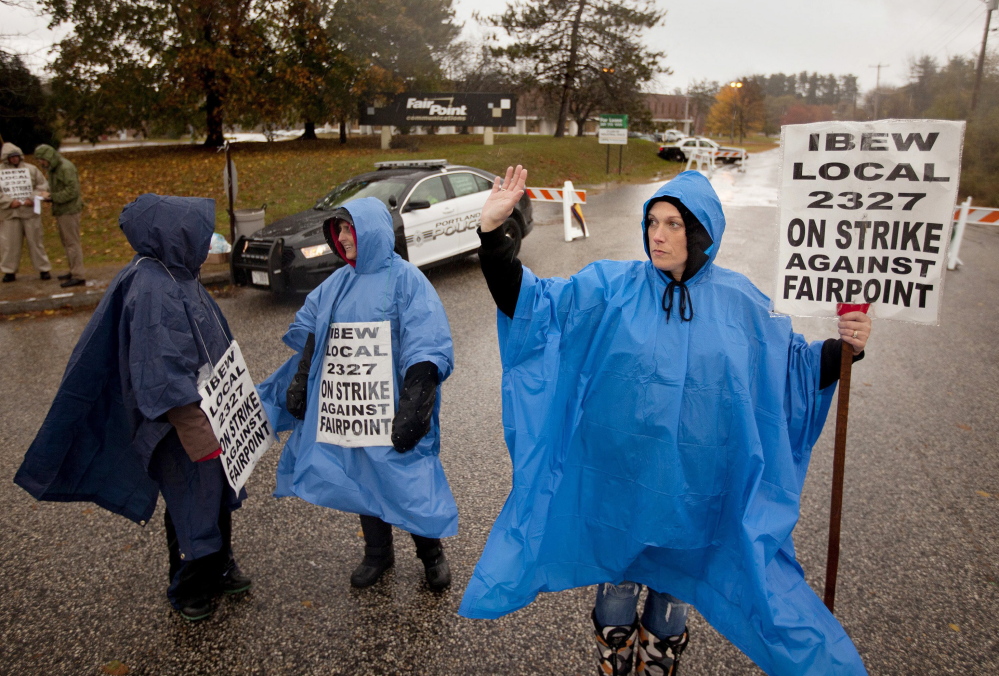The Maine Bureau of Unemployment Compensation has determined that FairPoint Communications workers involved in the four-month strike that ended in February are entitled to receive unemployment benefits for the time they were off the job, a decision that is expected to be appealed by the Charlotte, North Carolina-based company.
The strike began on Oct. 17, 2014, when nearly 2,000 FairPoint employees in Maine, New Hampshire and Vermont represented by the International Brotherhood of Electrical Workers and the Communication Workers of America walked off their jobs to protest the company’s demands that the unions accept more than $700 million in contract concessions. The strike ended in late February after federal mediators intervened and the striking workers voted to ratify new collective bargaining agreements with the company.
There were roughly 775 striking workers in Maine, according to Jeff Young, an attorney with the Augusta law firm Johnson, Webbert & Young who represents the labor unions and their members in Maine. However, not all of them are eligible to receive unemployment benefits because only around 500 actually took the proper steps to apply for unemployment benefits, Young said Friday.
What each striking worker is eligible to receive in unemployment benefits depends on their pay and how much the company contributed to the unemployment insurance program on their behalf, Young said.
The unions praised the decision by the unemployment bureau.
“My members suffered many hardships as a result of the labor dispute, going over 18 weeks without pay to stand up to FairPoint,” Peter McLaughlin, business manager for IBEW Local 2327 in Augusta, said in a statement. “This decision, although belated, hopefully will help them pay some of the many bills they incurred.”
Under Maine law, workers who go on strike are not automatically entitled to receive unemployment benefits. In fact, Maine’s unemployment bureau initially rejected striking workers’ requests to receive benefits when the strike began in October. However, following two days of hearings, Jodie Craig, the unemployment bureau’s administrative hearing officer, reversed that decision based on an interpretation of the statute that says striking workers are entitled to unemployment benefits if the company they’re striking against maintains “substantially normal operations” by hiring replacement workers to perform work ordinarily done by the striking workers.
Young, who agrees with Craig’s interpretation, said Maine’s statute with regard to replacement workers is unique.
“I’ve been handling these unemployment labor dispute cases for 25-plus years and I’m not aware of any state that has language that’s particularly similar to that,” he said. “I think this decision is the correct application of the law.”
In Vermont, the FairPoint workers who went on strike have also been deemed eligible for unemployment benefits, but striking workers in New Hampshire have been told they’re not eligible.
“Each state has its own unemployment statute,” Young said. “The language about the strike replacement or additional personnel is unusual if not unique to Maine, and that’s why you can wind up with different results in different places.”
FairPoint has until June 20 to appeal the Maine Bureau of Unemployment Compensation’s decision, which it intends to do, according to company spokeswoman Angie Beaudry.
“We believe the decision is flawed and we are appealing,” she wrote in an email.
Send questions/comments to the editors.


